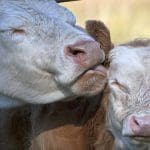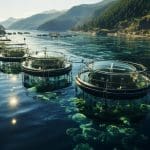Hey there, fellow pork enthusiasts! Today, let’s delve into a topic that often gets overshadowed in our love for bacon and pork chops: the hidden environmental and animal welfare costs of pork production. As much as we enjoy our pork dishes, it’s essential to be aware of the impact our choices have on the planet and the creatures we share it with.

Environmental Impact of Pork Production
When we bite into that juicy pork burger or enjoy a serving of ribs, we might not realize the hidden costs associated with pork production. The carbon footprint of pork production is significant, with greenhouse gas emissions contributing to climate change. The process of clearing land for feed production also leads to deforestation, further exacerbating environmental issues.
In addition to greenhouse gas emissions, factory farming practices in pork production also pollute the air and water resources. The concentrated animal feeding operations (CAFOs) produce immense amounts of waste that can contaminate nearby water sources and create air pollution, affecting both the environment and nearby communities.

Animal Welfare Concerns of Pork Production
While we savor the taste of our favorite pork dishes, it’s crucial to remember the animals behind the meat on our plates. The industry standard practices in pork production often raise concerns about animal welfare. Pigs are commonly confined in cramped spaces, deprived of the opportunity to express natural behaviors, and subjected to stressful living conditions.
This lack of proper care and space not only affects the physical well-being of the pigs but also takes a toll on their mental health. It’s important for consumers to be aware of these issues and consider supporting higher welfare standards in pork production by choosing products from producers who prioritize animal welfare.
Social Justice Implications of Pork Production
When we think about pork production, it’s not just about the environmental and animal welfare aspects. There are also significant social justice implications to consider, especially concerning marginalized communities and food system workers. The negative externalities of pork production, such as pollution and health risks, often disproportionately affect vulnerable populations.
By understanding these social justice issues, we can advocate for more sustainable and ethical practices in pork production. Supporting initiatives that promote fair treatment of workers and prioritize community health can help create a more just and equitable food system for all.

In Conclusion
As we enjoy our pork dishes, let’s not forget the hidden costs that come with our love for this meat. Being informed about the environmental impact, animal welfare concerns, and social justice implications of pork production allows us to make more conscious choices about the food we consume.
Remember, every bite we take has an impact beyond our taste buds. Let’s strive to support sustainable and ethical pork production practices and advocate for a food system that takes into account the well-being of the planet, animals, and all members of our communities.
4.7/5 - (25 votes)









